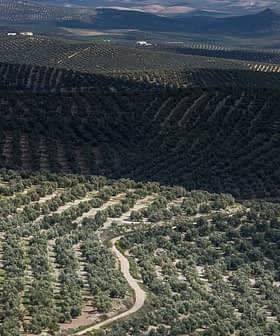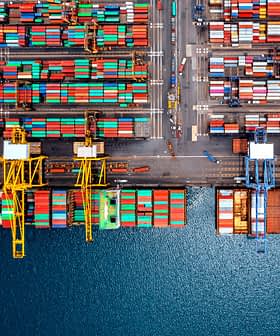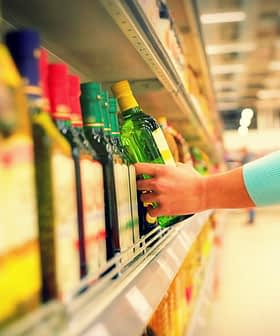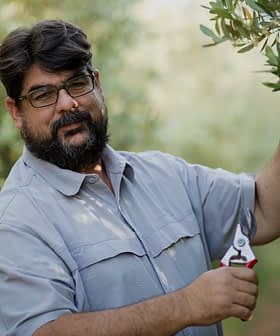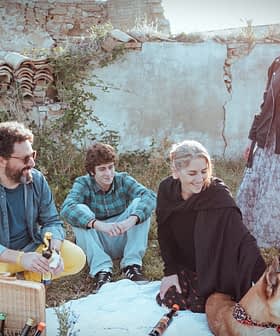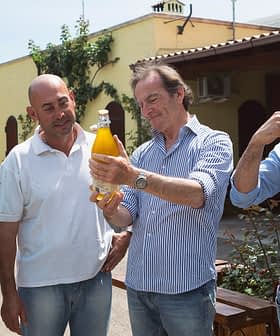Son of Pioneering Oregonian Wine Producers Blazes a Trail for Olive Oil
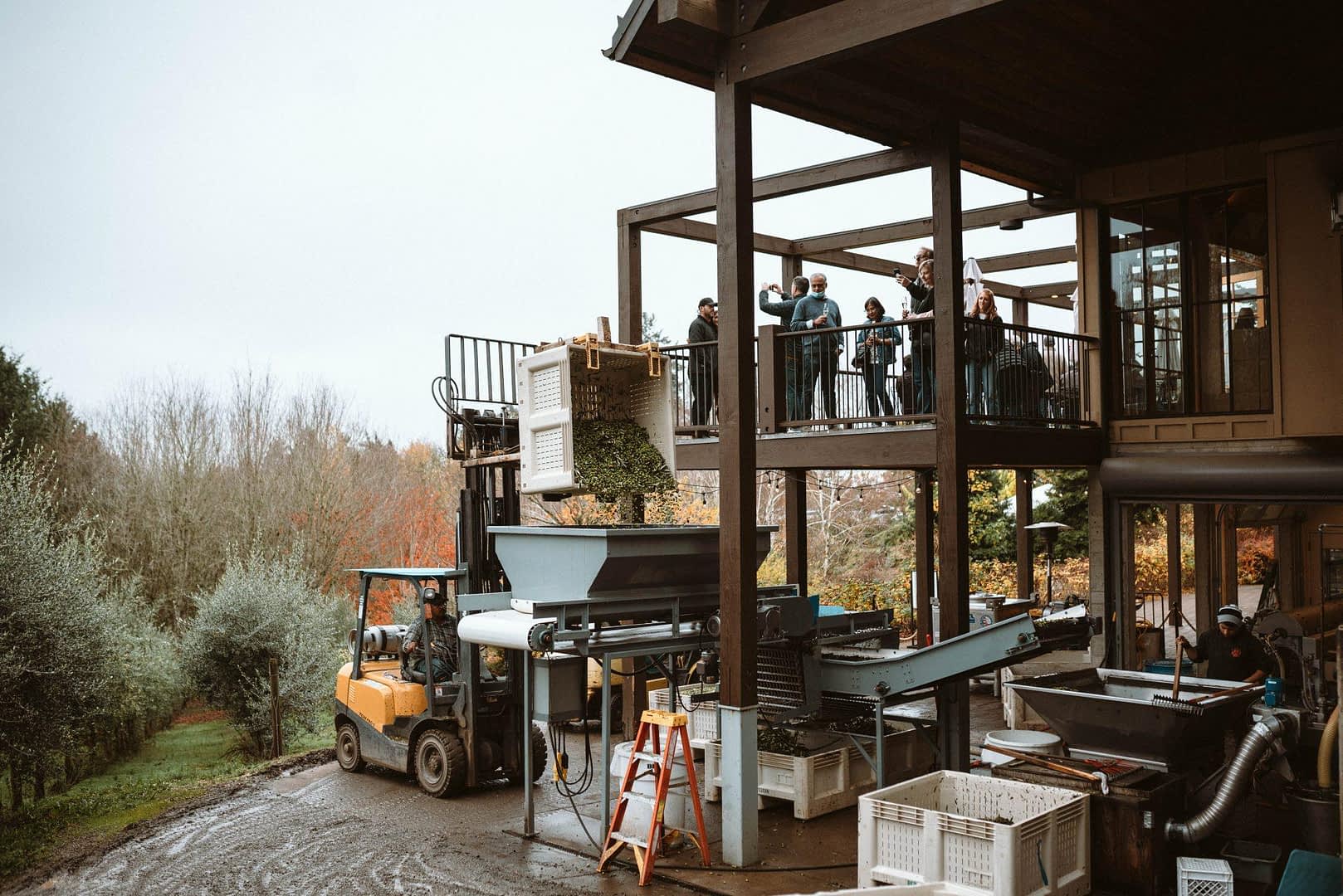
Durant Olive Mill in Oregon is beginning its 2021 olive harvest, expecting to produce 500 gallons of extra virgin olive oil. Owner Paul Durant has evolved his operation into the state’s only commercial olive mill, with plans to expand and continue entering competitions to grow his brand.
The 2021 olive harvest in Oregon is getting underway and the state’s most awarded producer is already out in the groves harvesting his trees.
Paul Durant, the owner of Durant Olive Mill, expects to produce about 500 gallons (2,200 liters) of extra virgin olive oil from his groves in the northern Willamette Valley, about 40 kilometers southwest of Portland.
I’ve really learned that magic happens… at that malaxation step. That’s where you have that intersection of fruitiness, bitterness and pungency, wanting all three of those to be harmoniously in balance.
Long-renowned as wine producers, Durant and his parents began planting olive trees in 2005. Since then, Durant has evolved his operation into the state’s only commercial olive mill.
See Also:Producer Profiles“My parents were amongst the first to do cool climate viticulture in the north Willamette Valley,” Durant told Olive Oil Times. “Then we started a commercial nursery in the late 1990s where we propagated and sold plants. Through that process, my mother started selling some specialty plants which happened to be olive trees and became very interested in them.”
“We had some ground on the property that wasn’t conducive to grapes, so we thought well let’s put in a few thousand trees and start seeing what happens,” he added.
At the time, olive oil production was unheard of in Oregon and only beginning to take root in California.
“We kind of grew with the Californians so to speak,” Durant said. “We planted a lot of the wrong trees and had some really good learning experiences through trial and error. But it was really meant to be a supplement to and really complement the wine side of the operation.”
By 2008, the Durant family decided to start milling their olives, so they purchased the smallest-possible mill from Alfa Laval, which they have since updated, and spent two seasons harvesting olives with the help of an Italian miller.
“Duccio Morozzo della Rocca was very instrumental in not only showing us the mechanics of how to make olive oil but more importantly about the sensory aspects of the milling process that can really enhance that,” Durant said.
At the time, Durant was working full-time as a mechanical engineer and would take off a few weeks each autumn to come up and help out with the harvest. However, as his parents approached retirement age and considered selling the farm, he decided to make the career switch.
By the 2010/11 crop year, Durant was a full-time olive farmer. Along with harvesting and milling his own olives, he began purchasing olives from northern California, creating purely California-grown extra virgin olive oils as well as blends of Californian and Oregonian olives.
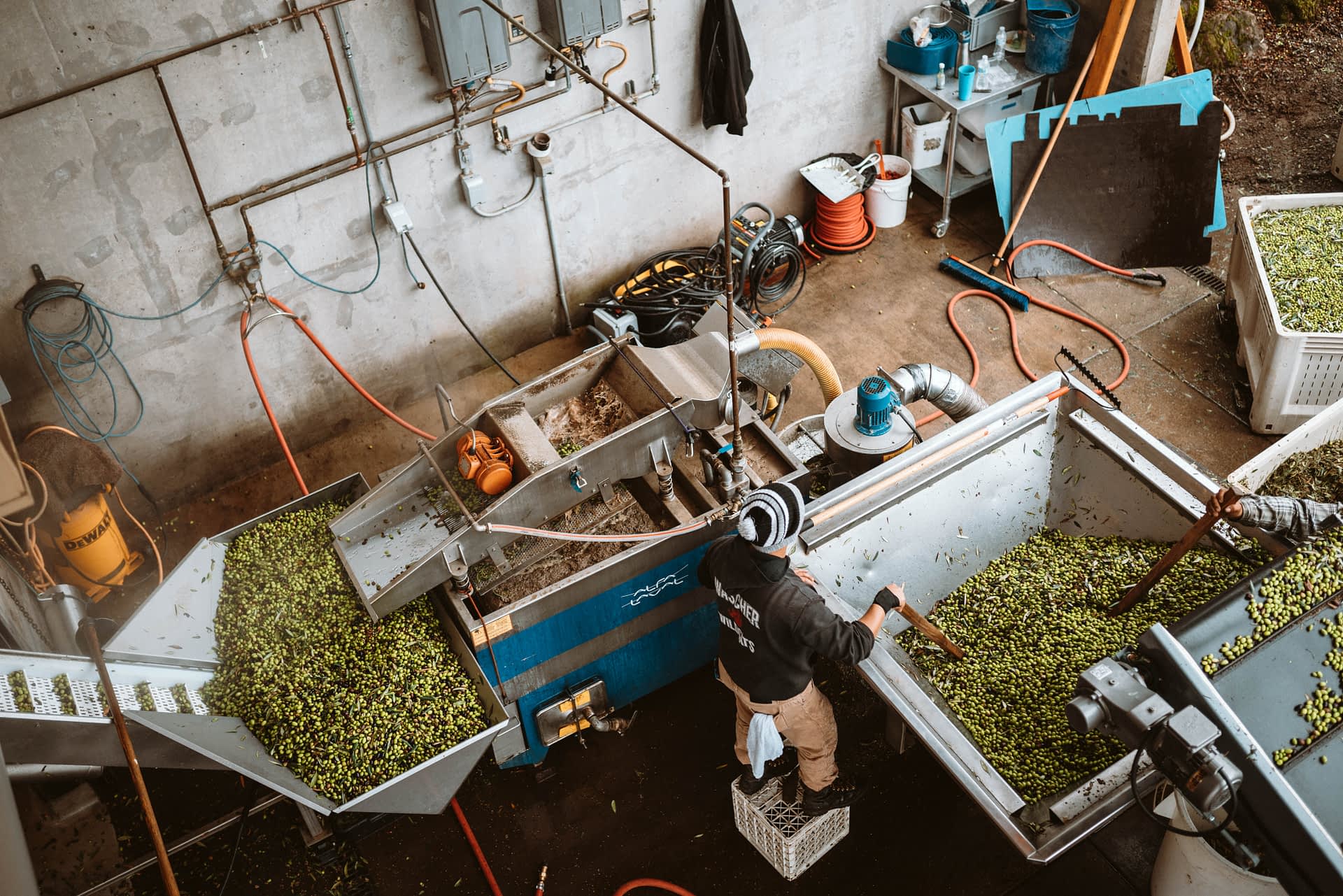
Photo: Kelsey Chance, Good Chance Creative
Durant primarily produces olive oil from his Arbequina trees but plans to shift production more toward Frantoio, Leccino, Pendolino, Picual and Nocerella, all of which do better in Oregon’s unique climate and provide more consistent yields.
He attributes some of his success as a producer – Durant Olive Mill has won 16 awards at the NYIOOC World Olive Oil Competition over seven years – to his background in mechanical engineering. However, he has also had plenty of time to experiment, which has also helped him hone his method.
“I’ve really learned that magic happens, in terms of olive oil flavor, at that malaxation step,” Durant said. “That’s where you have that intersection of fruitiness, bitterness and pungency, wanting all three of those to be harmoniously in balance.”
“I’ve learned how to treat that process through malaxation and really let the separation be as simple as possible, where I’m not having to manipulate things around a lot,” he added.
Along with becoming a better miller, Durant also believes he has gotten better at tasting the olive oils at the moment of transformation and projecting how the flavor will evolve over time.
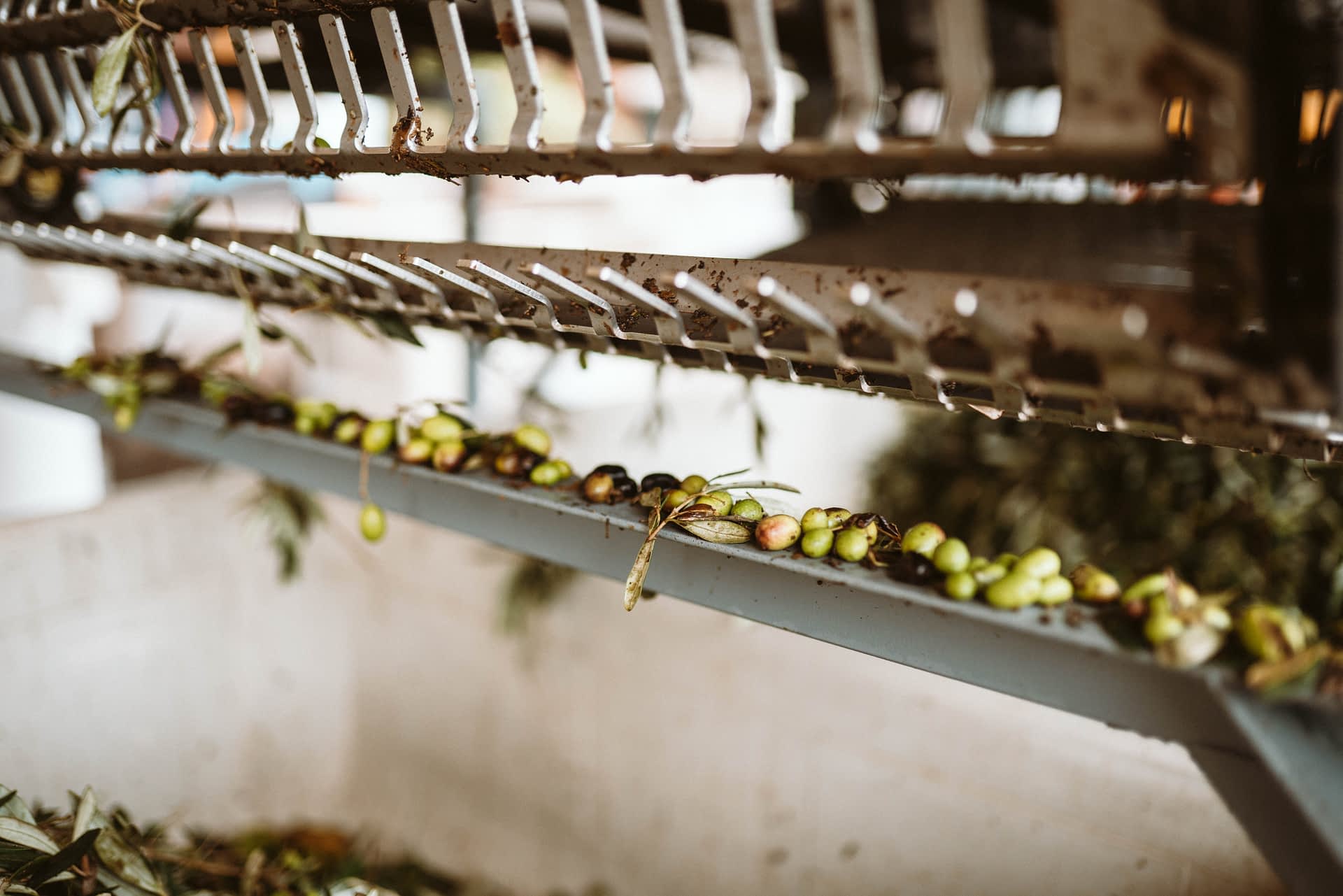
Photo: Kelsey Chance, Good Chance Creative
“Even with winemaking, when you’re tasting that juice early in the process, you’re trying to project out what’s this going to be like down the road and it’s the same thing with olive oil,” he said. “It’s so vibrant coming off the end of the milling process but after you filter it, what are the components that are going to be there because they’re obviously going to be more muted.”
While Durant is just beginning his own olive harvest, he has already been transforming olives that he buys from California and, for the first time, southern Oregon. Overall, he hopes to produce as much as 10,000 gallons (45,500 liters) of olive oil but does not know how close he will get to this figure due to the unpredictability of the current harvest.
“It’s been a challenging harvest so far this year,” he said. “It’s been pretty wild. The yields are way off and that’s kind of going to be the story of the harvest.”
Durant attributes these levels of unpredictability to all the rain and humid weather in northern California recently.
“They had a deluge of rain down there and all our olives are mechanically harvested so they couldn’t get the harvesters in on the soft ground,” he said. “At a couple of the sites from which I source fruit, they picked up a third of their annual rainfall in two days.”
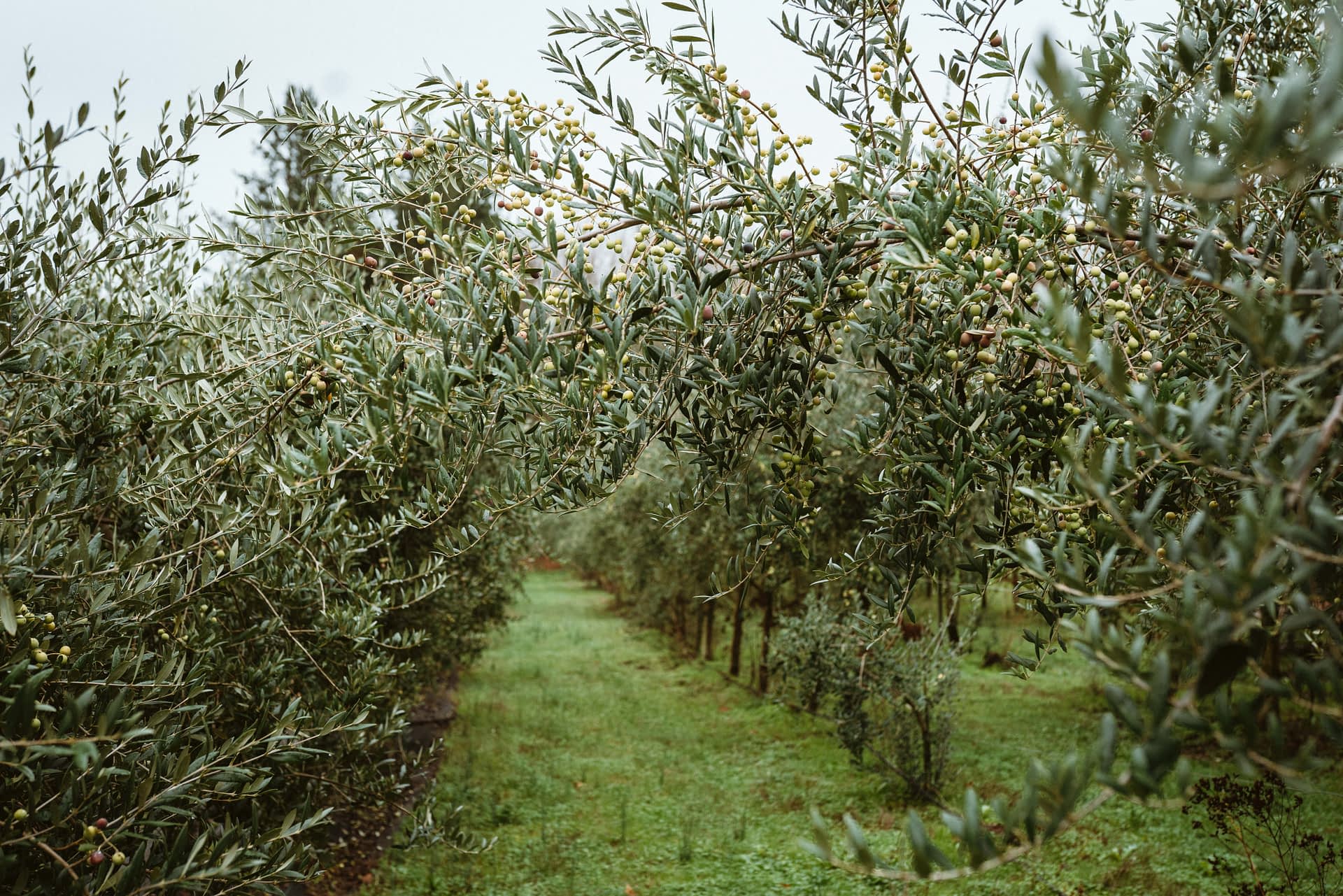
Photo: Kelsey Chance, Good Chance Creative
“It’s a huge bummer,” Durant added. “The fruit really puffed up with water, so there’s a lot of water weight in these olives… I buy the fruit by the ton, so I’m buying a lot of water right now because the fruit is so saturated.”
Luckily for him, the olives Durant sources from Oregon have arrived in slightly better condition.
“I don’t know if the trees are more acclimated to being in saturated soil conditions so they don’t really pump water,” he said. “But so far what I’ve milled for other people has been typical. Right around the low 30 gallons per ton range, which is pretty good.”
For Durant, the opportunity to purchase olives from southern Oregon was a watershed moment. Along with plans to open a second commercial mill in the state, he hopes this is a sign that olive oil production will continue to take root.
In terms of his own operation, Durant has seen demand for locally-sourced olive oil spike during the Covid-19 pandemic.
“Our tasting room was closed for the better part of 18 weeks in 2020,” he said. “Our wine sales were down, but our olive trees became very important for the business.”
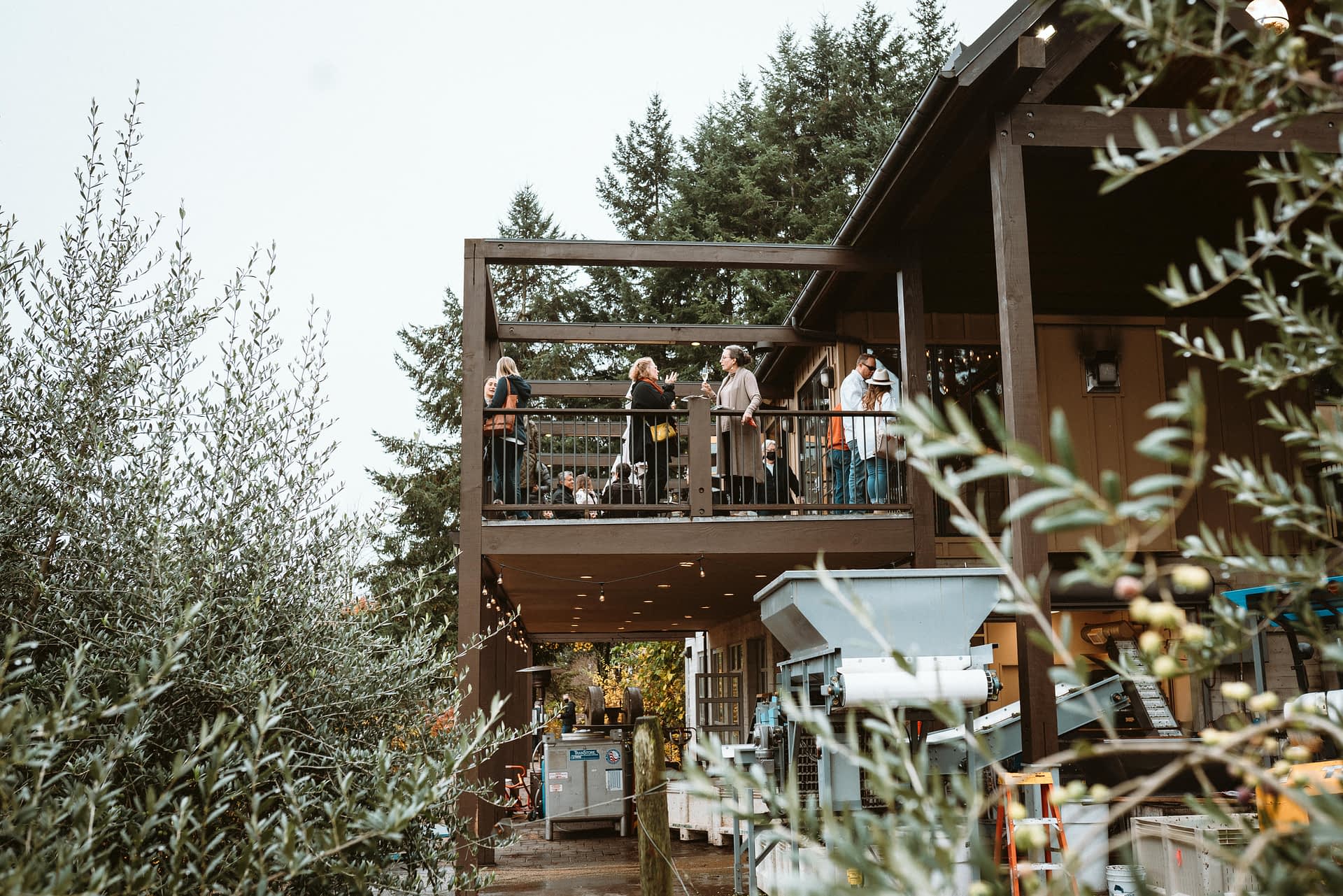
Photo: Kelsey Chance, Good Chance Creative
One of Durant’s main sources of income comes from a big contract he has for 3,000 gallons (13,600 liters). Generally, grocery store sales make up 40 percent of what remains and the other 60 percent of sales come from visits to his farm and online, which saw a four-fold increase in 2020 compared with 2019.
Durant emphasized that winning quality awards has been immensely helpful to growing his brand and gaining name recognition on supermarket shelves, which in turn drives foot traffic to the farm and online traffic to the website.
“Being where we are procuring fruit or having to drive it here, I think there are questions about how are we maintaining that freshness,” he said. “Third-party validation is really key for consumers. We can say it’s great. They can say it tastes great, but this panel of experts tasted it and really put that seal of approval on it. We have every one of those [NYIOOC] awards prominently displayed in our tasting room.”
Durant is already making plans to enter the 2022 NYIOOC and is optimistic that he will be able to add a few more awards to his tasting room.
“We will enter for sure. I am really happy about the Arbequina that we’re cranking out right now,” he said. “That’s always interesting. It’s such a mild olive oil, but it’s really lovely. I’ve made a Mission that’s always tasted great.”
“I’m getting some other later oils too,” he concluded. “I haven’t milled Koroneiki yet, which is one of my favorite olive oils, but I’m not getting that until after Thanksgiving. It’ll be a very interesting experience to be milling so late and see how the flavors evolve.”


